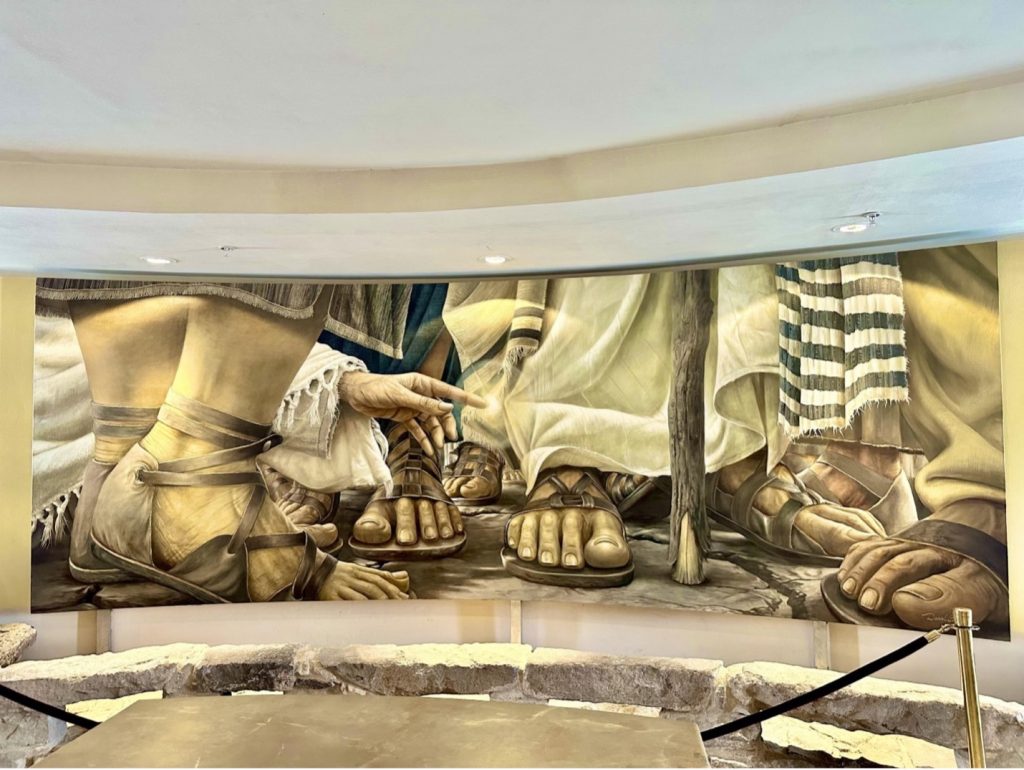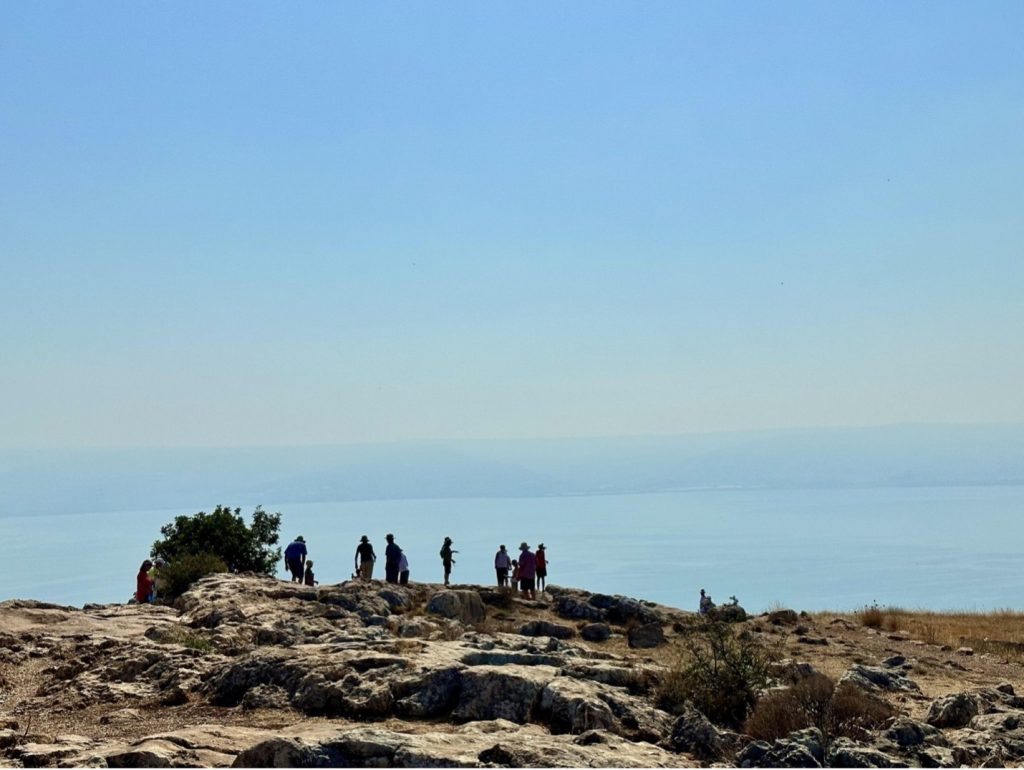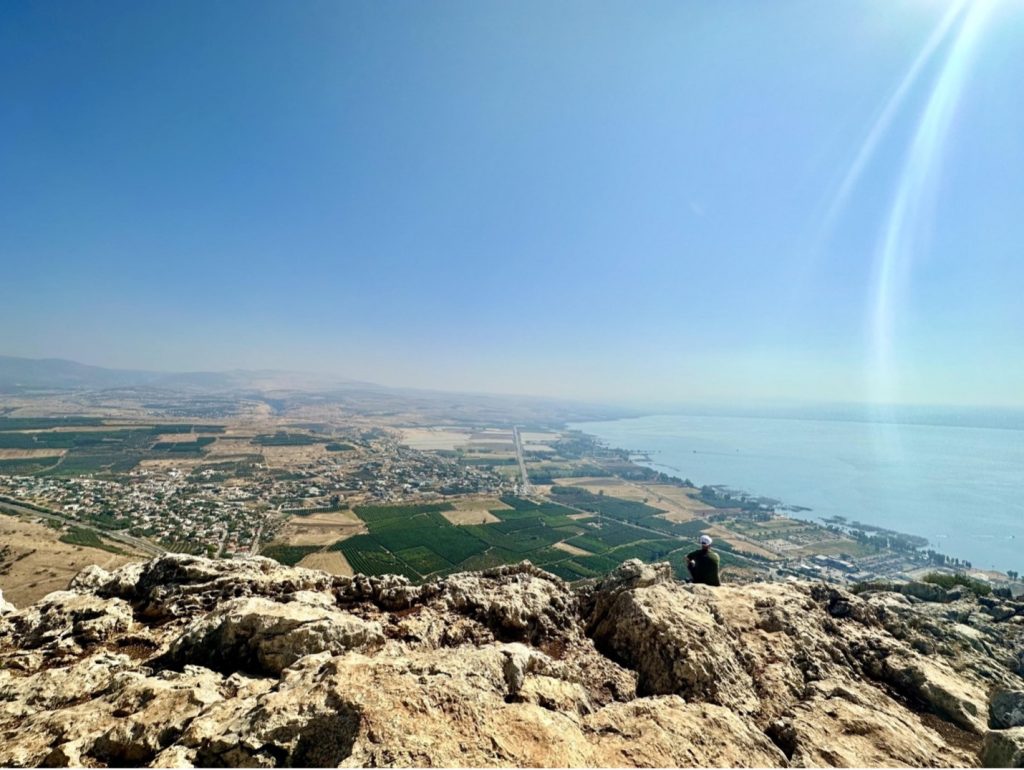“How was the trip, Josh? What were some of your major take-aways from Israel?”
I’ve struggled to answer this question since returning home from a recent learning tour with about 35 folks from Franconia (PA) Mennonite Church. We traveled together not merely as tourists, but rather as seekers of God on a spiritual pilgrimage.
Unpacking and processing the lessons from our journey will take a lifetime, but one key takeaway was a reminder of all the ways the Gospel is good news especially for “outsiders.” At nearly every site we visited, I was confronted with this core biblical truth: The Good News is more inclusive1 than we might think.
We visited Bethlehem and went to the Shepherds’ Field, where angels announced that the birth of Jesus would be “good news of great joy for all people.” It was not just for a select few; not just for insiders; not just for those who believe all the right things.
We visited Capernaum, standing on the very shore’s edge where Jesus called his first disciples. The Bible describes them as “unschooled and ordinary.” Later he calls tax collectors and zealots — traitors and terrorists — to be his followers. These are the people he calls to follow him? Yes, because the Good News is more inclusive than we might think.

We visited Magdala and were brought to tears as we considered the courage, sacrifice, and faith of Jesus’ female disciples – righteous women of God who played such a crucial role in Christ’s ministry: followers, students, disciples, patrons, evangelists.

We stood in the Upper Room, where Jesus got down on his hands and knees and washed the feet of those who would betray him. I find this nearly incomprehensible. Yet that is what he did.
We visited the place where Jesus was crucified, touching with our hands the rock in which his cross was set, and we remembered how as he was being put to death, he prayed for his crucifiers: “Father, forgive them, for they don’t know what they’re doing.”


And then we went to the empty tomb, where Jesus defeated death and sin and shame, so that everything can be reconciled to God through him. All things. All people. No exceptions. The Good News is more inclusive than we might think.
We climbed to the top of Mount Arbel, where Jesus met the disciples after the resurrection and gave them the Great Commission. From that vantage point, atop the mountain overlooking the towns and villages and horizon, one gets a vivid sense of what’s in mind when he says, “Go and make disciples of all nations”: that is, as far as the eye can see.


The list goes on. If I took anything away from our trip to the Holy Land, from my study of Scripture, from following Jesus throughout my life, it’s this. The Good News of the Gospel is more inclusive than we might think.
And as followers of Christ, our invitation – our mission — is to receive, embody, and extend this Good News to our community and to the world.
May it be so … and may it begin with you.
1 I’m using the word “inclusive” here in its most basic sense: expansive, all-encompassing, comprehensive in scope.
The opinions expressed in articles posted on Mosaic’s website are those of the author and may not reflect the official policy of Mosaic Conference. Mosaic is a large conference, crossing ethnicities, geographies, generations, theologies, and politics. Each person can only speak for themselves; no one can represent “the conference.” May God give us the grace to hear what the Spirit is speaking to us through people with whom we disagree and the humility and courage to love one another even when those disagreements can’t be bridged.
